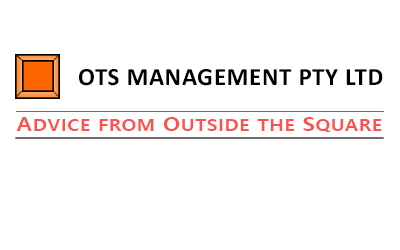It's the start of a new year and you have a great business idea!
What are you going to do about it?
It's got you really excited, so of course, you must decide to start your own business...be your own boss! You can do things better than where you're working now, you can focus on your own Vision and build the business to be your path to your Purpose!
So, what do you need to know before you start the business? How do you get ready?
Here are 7 steps you need to take in order to take a reasoned approach to how you start your business.
At the end of this article, I'll introduce you to a short video course that you can take, which will step you through these 7 steps, one by one, and work with you to build your startup.
For now, let's go through these 7 steps.
Step #1 Find Out If You Are Ready To Start A Business
I don't mean if you know what you are doing, or if you know enough about the products you want to sell. I mean find out whether you are emotionally ready?
Running a small business as a sole proprietor, or even as a partner, can be a lonely road.
Ask yourself if you really know what's ahead of you and if you are emotionally invested in going through any difficult times that will surely come.
Talk to people you know and admire about how they started their journey in business. Check with your spouse and family - who will no doubt be supportive, but make sure they understand the sacrifices in time and possibly income in the early years.
Most of all, ask yourself if your "Why" - the purpose that is driving you - is strong enough to sustain you when times are hard. Is it the strength that will keep you going when cash flow is tough or when people first reject your products?
Small business owners often underestimate how hard it is to sustain a consistent effort, and many decide to call it quits when it gets tough. Make sure that you can sustain your efforts while retaining your wellbeing.
Step #2 Make Sure That Your Business Idea is Feasible
Will your business idea really fly?
This means that you should look at barriers to entry, at your competitors and at the potential market.
Barriers to entry are obstacles some industries have that make it hard for people to start a business in that industry. For example, in some trades like the building trades, you have to be accredited. Perhaps the product you want to sell is licensed by the manufacturer and they have already licensed a supplier in your area.
Some businesses may require a substantial capital investment in equipment. Do you have that capital?
If there are barriers to entry, look at what can you do to get over them?
Looking at your competitors is a reality check.
I advised a client once who wanted to buy a travel agency in a suburban centre. When I looked at the competition with her - just a simple Google search for travel agents in the suburb - we found out that there were 6 travel agencies within a 5 km radius. The size of the overall market in that area wasn't big, and on top of that, we found that several of these agencies were up for sale - a sign that maybe it's tough out there for travel agents in the area.
Looking at her competition made her decide to give up the idea, but her way to get over the barrier to entry was to stay within her experience and start a successful tour company instead.
Step #3 Design Your Business Model Before You Start.
What is a Business Model? It is how your business will produce the goods you sell, how it will sell the products, who it interacts with to do both, and how you will carry it all out.
A taxi company has a very different business model than an online ride-share company. The service of getting you from A to B might be the same, but the tools they use are different, the way they pay drivers is different, the key activities to find rides is done differently, the way they engage with customers is different.
Design your Business Model before you start so that you can design out the kinks and design in the features that will connect you with partners and customers. Know, before you start, where most of your attention needs to be focused on.
In many instances, it's easy enough to work this out: -
- Who you will sell to;
- Who supplies things to you;
- Who you need to hire;
- How you will engage with or market to your customer;
- What will be the key activities in your business?
However, many small business startups start without this model clearly in their head, so when they start, they work it out as they go along.
This means that they waste time marketing to all the wrong people. When they discover they need certain supplies, they spend time in order to find a supplier at the right price and negotiate credit terms.
All this wastes time once you are committed, and when you are committed what you really want to spend your time on is developing sales not on how you should do things.
Step #4 Prepare Your Business Plan.
Know that 80% of small businesses close within the first 5 years. Studies show that the large majority failed because they did not have a plan. These businesses did not plan to fail - they failed to plan!
The fourth thing you should do before you start a business is to prepare your business plan.
A business plan is a record of your business idea and model, the goals you set up, and the strategies and actions you need to take - over a period of time - to achieve those goals.
Your business plan should contain - after careful thought:
- Your business Purpose (why does it exist) and Vision (what do you want it to end up being)
- The strengths and weaknesses of your business and product so that you can use your strengths and eliminate your weaknesses
- Identify your target market so that you can focus on low hanging fruit instead of trying to sell to "everyone with a pulse" (take a tip, that doesn't work)
- List your goals and objectives
- List your strategies to attain those goals and objectives
- Identify your staff structure (and therefore who you need to find and hire)
- Your budget and financial forecast.
Use this business plan on a regular basis to check in with - how have you done? What do you need to do next?
Step #5 Find your advisors.
The fifth thing you must do before you start your business is to identify your go-to people when you need help and advice.
You will need an accountant and probably a lawyer to start with. You should also get to know your bank manager and perhaps an insurance broker and a finance broker.
It's also useful to choose a mentor - someone experienced in business and whom you trust so that there is someone you can ask "silly" questions of and not feel embarrassed.
I said at the start, running a small business can be a lonely experience, so create a group of friends and people around you who know what they are talking about and can give you moral support as well as advice without fear or favour.
Step #6 Get Advice About Your Legal Structure?
Without going into detail right now, broadly speaking, you can operate as an unincorporated sole trader, you can enter into an unincorporated partnership, you could set up as a family trust, or you can incorporate a company.
Each option has pros and cons, ranging from the cost of annual maintenance to protection of personal assets if something goes wrong, to tax savings and the commerciality of the structure.
That's where your good accountant comes in - discuss what entity you should operate as before you start your business. You do not want to be figuring this out partway through the first year, or later, when it may be too late!
Step #7 Look After Registrations, Legal Matters and Financial Setup
Find out registrations or legal and financial setup you might need to complete before you open.
These range from industry registrations (trade associations and so on) as well as licensing registrations (some Local Councils may need you to register your business premises if you work from home, for example), and taxation registrations. You will need to open appropriately structured bank accounts and have insurance policies in place. To set up your financial systems you will need to decide on bookkeeping software and implement a financial control system.
Depending on your business model, you may need to register with the Australian Taxation Office for a Tax File Number and an Australian Business Number, Pay As You Go Withholding, and GST. Again let your accountant explain and guide you.
As well, don't forget to register domain names for your website - don't wait a year and then find that when you want to create your website the name has been taken.
You should also get to know what legal considerations you need to take note of.
For example, you may be signing a lease, various employment and other contracts, as well as loan and other agreements such as distribution agreements and applications for credit.
Some of these are extremely complex, so make sure that you consult with a lawyer about what you need, and what is in those documents.
Oh, and while we're talking about lawyers - go and get your Will updated!
To summarise, these are things to have done before you start your business:
- Make sure you are emotionally set up to start your own business;
- Checked the feasibility of your business idea;
- Designed your business model;
- Written your business plan;
- Know who your advisors are;
- Know what structure is suitable for you; and
- Completed incorporation, registrations and legal and financial considerations.
There seems to be a lot to do but you need not be overwhelmed.
Start early and take it one step at a time.
The advantage of doing this step by step is that at each step of the way, you learn a little more about yourself and what kind of business you will operate so that after you have taken that last step, you are well prepared and ready to open your doors!
Taking it one step at a time also means that you are building up the knowledge to tackle the next step so that by the end, you have accumulated what you need to know, as well as gathered a pool of people you can go to if you need.
Remember, starting a business is an exciting adventure and never lose sight of that. However, it is a significant investment in time, emotion and money so you need to be prepared.
Set yourself up from the start, and you can look forward to building that successful business that gives you and your family the life you love.
If you have found these 7 steps to be useful to know about, I have a comprehensive video-based training about applying these 7 steps in starting your business.
It is called "How To Start Your Own Business - Without Pain".
The course provides detailed training in each of these 7 steps. If you feel overwhelmed about all the things you have to do and about coordinating all these things, never fear, the course walks you through every step. Once you discover how you can tackle each step in detail and build your knowledge, you will be relieved that all the overwhelming tasks are natural stepping stones to the successful opening of your business.
The course is contained in a series of 5 to 15-minute videos which explain each step and then provide training in what you have to do. They are accompanied by worksheets and downloads so that you can follow through. It is completely guided from step to step.
Read more about this course here - and the best part? As an introduction to our video training methodology, the course is only $97 but is packed with a calculated $8,000 full of value!
Don't miss it! Check it out at this link!




